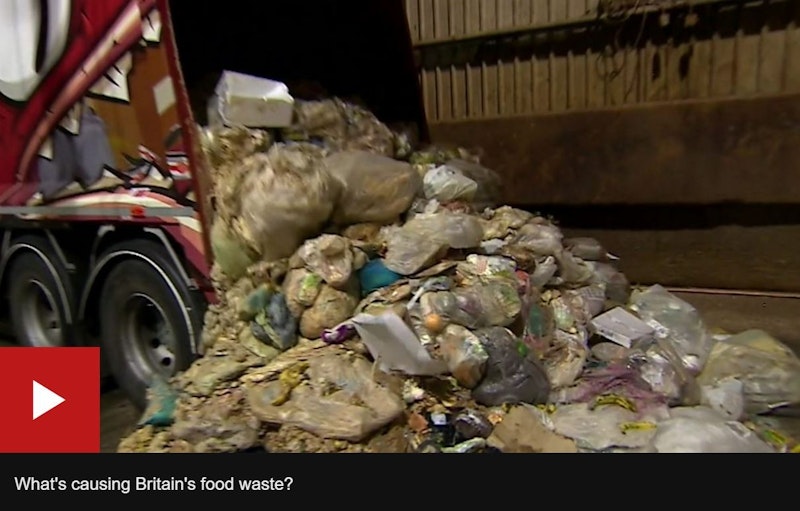In the News
Waste not, want not
5th December 2017
What do businesses do? They use inputs - land, labour, capital and enterprise - to create goods and services, and a key focus of their operations department is to minimise the inevitable waste that occurs in the process. But some of the waste of resources happens when they over-produce and create more output than customers want to buy - demand exceeds supply, leading to goods left on the shelves.
According to the Food Standards Agency, the UK throws away 7.3 million tonnes of food each year, and much of it is perfectly usable. High profile news came from the Co-op yesterdaythat they are tackling this with a campaign called "Don't be a Binner, have it for dinner". They are selling dried foods and tinned products which have passed their nominal 'Best before' dates at just 10p an item, and customers are snapping them up.
The idea has been trialled at just 14 stores, and is now being rolled out to 125 stores in East Anglia. Roger Grosvenor, East of England Co-op's joint Chief Executive, says "This is not a money making exercise, but a sensible move to reduce food waste and keep edible food in the food chain." The offer doesn't apply to perishable items, but they estimate the initiative will stop at least 50,000 items a year being thrown away.
There is a significant difference between "Use by" and "Best before" labelling. Use By applies to foods which are highly perishable - such as fresh fish, meat and poultry - and therefore constitute an immediate danger to human health, and means that the foot cannot be sold, redistributed or consumed after this date. Best Before is for all other kinds of food, which can be sold, redistributed and consumed after this date. Wrap, the national waste and recycling advisory body, said that as long as discounted items were not damaged, the move meets the latest guidelines from the Department for the Environment, Food and Rural Affairs and the Food Standards Agency.
It seems like a great initiative - and while they are clearly not profiting from selling items at 10p each, it allows the Co-op to make some contribution towards it's fixed costs, and break even more easily. It will be interesting to see whether others follow suit - both Tesco and Waitrose currently offer food that is beyond its "best before" day but within its "use by" date to local or national charities. Meanwhile, students might enjoy a linked article on the BBC website, "What's the oldest thing in your food cupboard". 35-year old Paxo stuffing mix, or 12-year old rice pudding?

You might also like
Kaizen
Study Notes
Critical Path Analysis
Study Notes

Improving the Profits from Pasties
13th January 2016
Ocean plastics and CSR
30th January 2017

Multinationals, Emerging Economies and the Obesity Epidemic
19th September 2017
Netflix & Learn - The Minimalists
15th March 2019
Teaching Activity: Kaizen Toast (Quality & Lean Production)
Teaching Activities